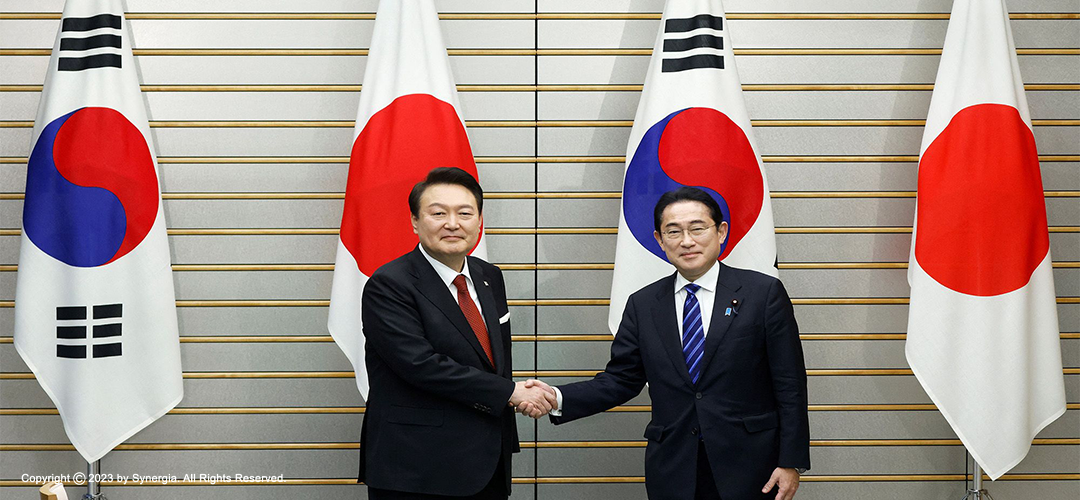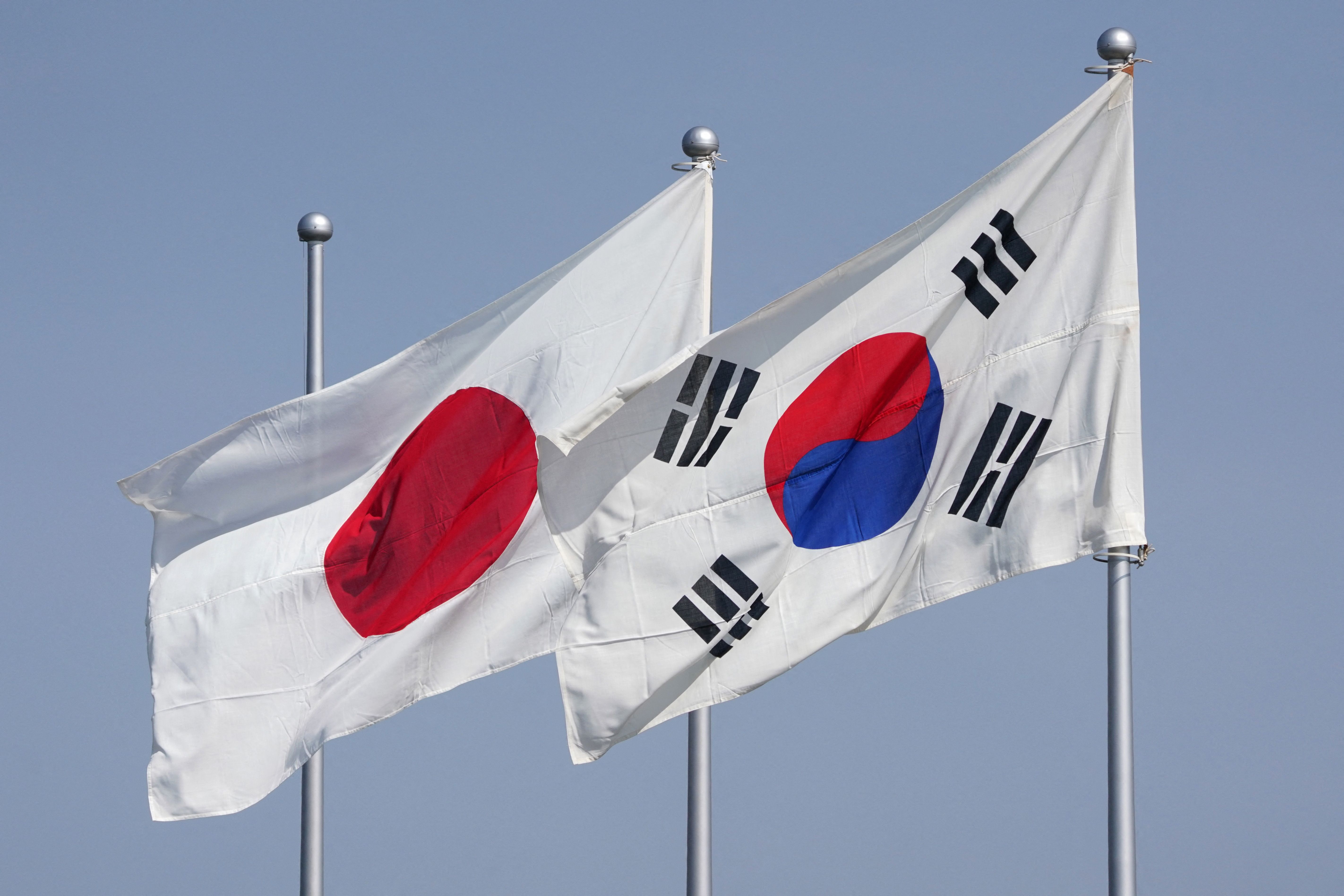Putting the Past Behind
May 5, 2023 | Expert Insights

South Korea and Japan held talks in Tokyo in a significant summit that has paved the way for smoother relations between the two countries. Japan welcomed the president of South Korea for the first time in 12 years. The two leaders agreed to resume regular visits, defence dialogue, and strategic talks. They also resolved a long-standing trade dispute.
The two nations share a difficult history since Japan colonised Korea in 1910, and tensions recently resurfaced between them in 2018. However, both countries are keen to form a united front in the face of regional security concerns such as North Korea's arms development and China's military buildup.
Background
Imperial Japan colonised Korea in 1910 after years of conflict and several attempted invasions as a part of its imperialist expansion. During its occupation of Korea, the Japanese rulership waged a war on Korean culture to establish its control over Korea. Additionally, Korean workers were put into forced labour and made to work in Japan and its other colonies. Hundreds of thousands of Korean women were sent to military brothels as "comfort women" for Japanese soldiers.
Japan's occupation of Korea ended in 1945 when it was defeated in World War II. In 1965, the two countries signed a treaty to restore diplomatic relations in which Japan provided more than $800m in grants and cheap loans to settle the matter and normalise relations. However, the 1965 treaty did not settle all the problems of South Korea's colonial past.
Tensions resurfaced in 2018 when South Korea’s top court ordered three Japanese firms to compensate Koreans that they used as forced labour during the Japanese occupation. According to the Japanese government, the 1965 treaty settled the reparations. The tensions were exacerbated when a South Korean warship allegedly targeted a Japanese patrol aircraft. Dialogue between the two countries was suspended. In August 2019, Japan imposed export controls on its electronics sector, providing semiconductor materials essential for South Korean businesses. Soon after, South Korea announced that it was ending an intelligence-sharing agreement with Japan.
South Korean leader President Yoon who took office last year, has been keen to mend relations. In a significant move, President Yoon dropped the demand that Japan compensate victims of forced labour, and he proposed that South Korea would raise the compensation funds instead. In response, President Yoon was invited to Tokyo for the summit. The summit also resolved the trade dispute: Japan agreed to lift its export restrictions while South Korea withdrew its complaint to the World Trade Organization (WTO).

Analysis
The summit is a significant diplomatic achievement for President Yoon. Mending relations with Japan has been a key aspect of his foreign policy since he took office. However, he has received much criticism for conceding too much to Japan. The scars of Japan's colonial rule run deep, and many in South Korea strongly oppose Yoon's bold decision to absolve Japan from any responsibility to pay reparations. Japan continues to maintain that it does not owe any reparations since the 1965 Treaty.
For Japan, it is a strategic win and offers it an opportunity to increase its regional influence. The détente has also bolstered relations of both nations with the U.S., which is a key ally and has been pressing the two countries to improve their relations and form a united front to counter China and North Korea in the region. President Joe Biden hailed Yoon's compensation offer as "a ground-breaking new chapter".
In the face of regional security concerns, South Korea and Japan stand to benefit from better relations with strategic and military cooperation and intelligence sharing. Russia's invasion of Ukraine has heightened tensions in northeast Asia. Beijing leaning toward Russia in the conflict has led to concerns about China's military expansion in the region as well as North Korea's arsenal of weapons. A united front between these two powers poses a stronger deterrence to North Korea's aggressive nuclear and missile development program.
It poses a new challenge to China's regional influence and ambitions. An alliance between Japan, South Korea, and the U.S. could be a source of concern for China, which has warned the nations not to provoke North Korea.
India, which enjoys excellent trade relations with both, would be pleased with the development as it would strengthen the alliance between democracies in the Indo- Pacific against the rise of China. Perhaps, it could also encourage South Korea to join the QUAD.
Assessment
- The summit signifies that the two countries are willing to take steps to mend fences and start a fresh chapter, despite their troubled history and the recent deterioration in their relations. It marks a turning point that could lead to better diplomatic relations and strategic cooperation to improve regional security for both nations.
- However, given the extent of atrocities it faced under Japan's harsh rule, it remains to be seen whether South Korea can overcome its difficult history with Japan. Yoon's compromise may have opened a way through the impassé between the two countries, but it has not addressed the years of suffering and hardship that South Korea faced.
- Better relations between these two powers mark a significant development in the regional balance of power. Along with the U.S., the alliance poses a sharp counter that China and North Korea will have to consider. However, India stands to gain with the improvement of ties between its two East Asian partners.








Comments